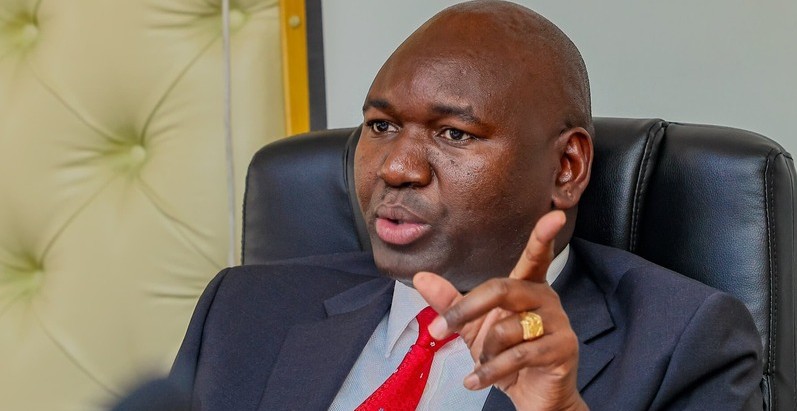World Bank places Kenya among nations with highest debt burdens

Kenya’s debt service costs on external debt more than doubled in 2023, rising from Sh403 billion to Sh839 billion. This sharp increase was attributed in part to the maturity of the Eurobond 2024.
Kenya has been ranked fourth globally for high-interest payments on external debt as a share of export earnings, according to the World Bank’s International Debt Report.
The report, published by the International Development Association (IDA), highlights Kenya’s growing debt burden, with interest payments consuming 12.8 per cent of its export earnings in 2023.
More To Read
- Jobs created in Africa mostly low-quality, informal - World Bank
- Treasury rolls out new plan to expand financial inclusion in Northern Kenya
- Kenya seeks World Bank, EU support to remove toxic asbestos roofs
- Global economic outlook dims as IMF warns of prolonged uncertainty
- World Bank urges Kenya to raise excise taxes to clear Sh526 billion pending bills
- Kenya borrowing Sh32.4 million every hour as total public debt hits Sh12 trillion
Mozambique led the rankings with 38.3 per cent, followed by Senegal at 25.9 per cent, and Pakistan at 13.6 per cent. Kenya narrowly surpassed Dominica, which recorded 10.3 per cent.
Commercial loans formed the largest portion of Kenya’s interest payments, amounting to Sh102.76 billion, followed by loans from China (Sh52.2 billion), the IDA (Sh22.29 billion), the African Development Bank (Sh13.99 billion), and the International Monetary Fund (Sh11 billion).
The IDA, a World Bank affiliate established in 1960, supports some of the world’s poorest nations through concessional loans and grants aimed at reducing poverty and fostering economic development.
The report noted that, on average, IDA-eligible countries saw their interest payments as a share of export earnings increase by 1.6 percentage points in 2023, reaching 5.8 per cent.
"This level of increase was last recorded in 2005," reads the report.
It cautioned that such high debt service costs weaken fiscal positions, diverting resources from essential services like education and health towards debt repayment.
Kenya’s debt service costs on external debt more than doubled in 2023, rising from Sh403 billion to Sh839 billion. This sharp increase was attributed in part to the maturity of the Eurobond 2024.
"For IDA-eligible countries, interest payments on total debt stock have tripled since 2013, reaching $34.6 billion in 2023," reads the report.
Kenya’s rising debt obligations have raised concerns about the country’s fiscal stability, as increasing resources are allocated to debt servicing at the expense of vital development needs.
The High Court recently directed National Treasury Cabinet Secretary John Mbadi to release details of all debt agreements made on behalf of Kenya, including information about the country’s sovereign bonds.
The court also ordered a comprehensive breakdown of the expenditure of all borrowed funds within 45 days.
In its ruling, the court stated that failing to disclose the treaties, agreements, or contracts signed between Kenya and any other state, international financial institution, corporation, or entity is unconstitutional.
This failure contradicts the constitutional right to access information under Article 35(1) of the Constitution.
Justice Lawrence Mugambi further ruled that withholding information about sovereign bonds issued on behalf of Kenya over the past nine years also violates the principle of financial transparency and accountability in public finance.
The decision follows five months after Justice Mugambi suspended an independent task force set up by President William Ruto in response to protests led by Generation Z, which had criticised the state for its growing debt and financial mismanagement.
The court’s ruling concludes a two-year legal battle and is expected to expose details of Kenya’s increasing reliance on borrowing, a practice often referred to as the country’s "begging culture."
The secrecy surrounding debt agreements was a key issue during the first administration after the 2010 Constitution, under President Uhuru Kenyatta and his deputy William Ruto.
“They have 44 days from today. If they fail to comply, we will hold someone in contempt of court. Let them defy the court, and we will take them the Masengeli way,” Advocate Evans Ogada said.
According to data from the Central Bank of Kenya, the country’s economy grew from Sh1.8 trillion in 2013 to Sh10.6 trillion in June 2024.
Top Stories Today













































